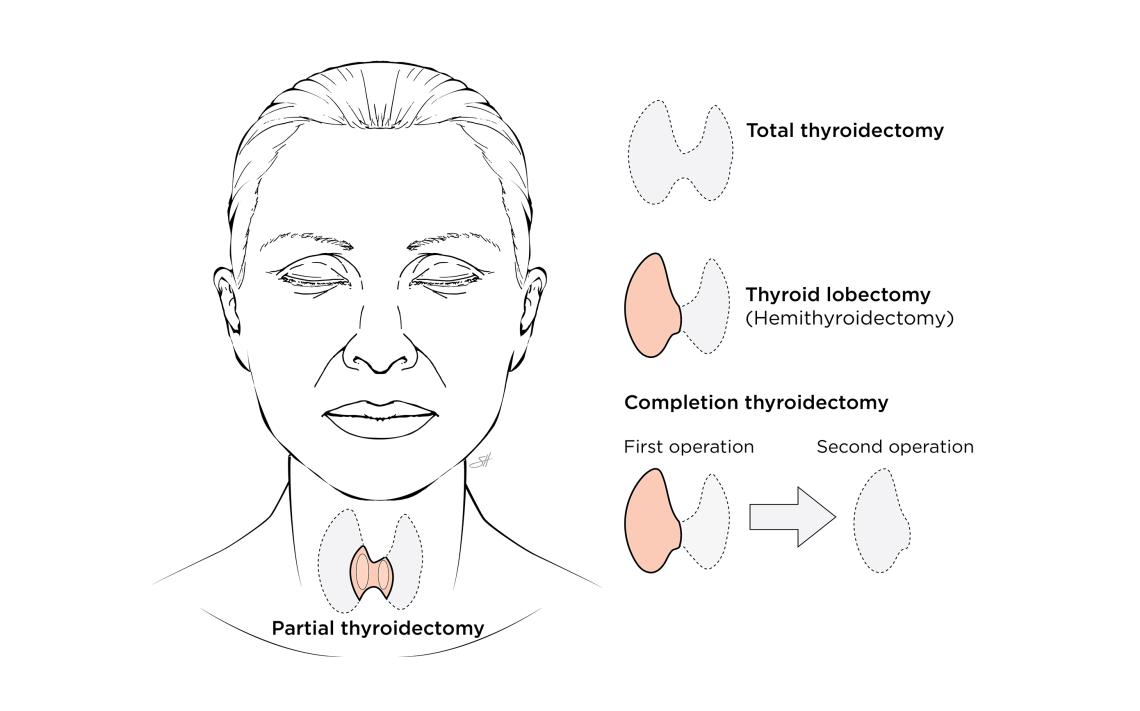A thyroidectomy is surgery to take out your thyroid gland. This gland is shaped like a butterfly. It lies across the windpipe (trachea). The gland makes hormones that control how your body makes and uses energy (metabolism). A doctor removes the gland when it gets too big, does not work right, or has a tumor. Most tumors that grow in this gland are benign. This means they are not cancer.
In the traditional approach, the doctor will take out the thyroid through a cut (incision) in the front of your neck. There is an alternative that will not leave any visible scar on your neck. Here is more information regarding the scarless option: Scarless Thyroid and Parathyroid Surgery
You will NOT have a tube, called a drain, in your neck after the surgery. It is very uncommon to need a drain.
You may go home on the same day. Or you may stay one night in the hospital and go home the following day after breakfast. You may return to work or your normal routine in 1 to 2 weeks. This depends on whether you need more treatment and how you feel. It may also depend on the kind of work you do.
Your doctor will check your incision in about a two weeks. You may need to take thyroid medicine. If you have thyroid cancer, you may need to have radioactive iodine therapy. Your doctor will talk to you about what happens next.
How is surgery used to treat hyperthyroidism?
Surgery for hyperthyroidism is called thyroidectomy. It removes part or all of the thyroid gland. Surgery is a good option for treating hyperthyroidism. There are alternative non-surgical treatments available as well. You need to speak with a specialist to determine the right type of treatment for your particular case.
You may need surgery if:
- Your thyroid gland is so big that it's hard for you to swallow or breathe.
- You have thyroid cancer.
- Your doctor suspects that you have thyroid cancer.
- You had serious side effects from taking antithyroid medicines, and radioactive iodine isn't an option for you.
- You have a large goiter that radioactive iodine treatment didn't shrink.
- You have a single, large thyroid nodule that makes too much thyroid hormone, and radioactive iodine didn't help with the nodule.
After surgery, your doctor will check your thyroid hormone levels. That's because you could get hypothyroidism (too little thyroid hormone).
© 2016-2019 Healthwise, Incorporated.








 Credit
Credit
